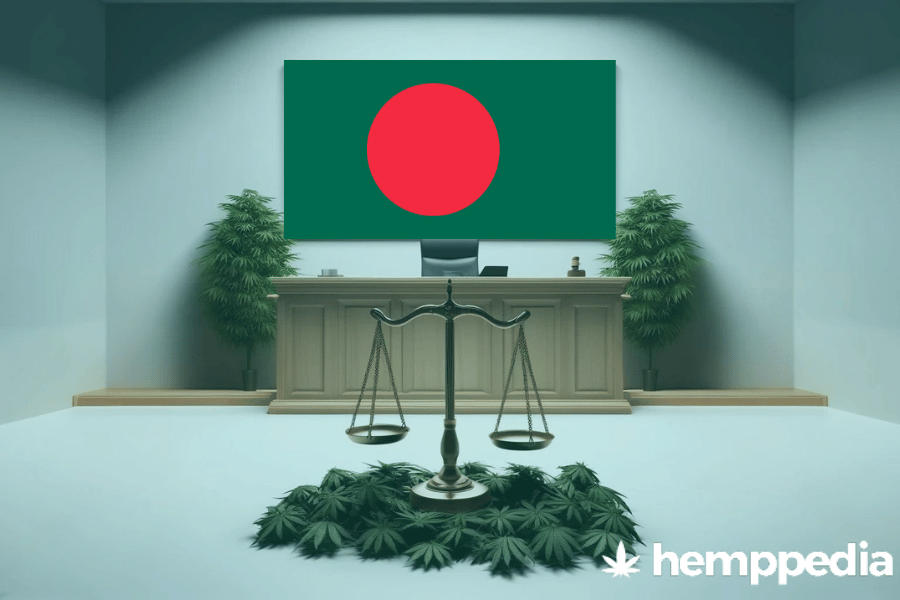Is CBD Legal in Bangladesh?
TL;DR:
CBD, or cannabidiol, is a non-psychoactive chemical compound from cannabis plants, and its legal status varies around the world. As of now, CBD and all other cannabis products are considered illegal in Bangladesh under the Narcotics Control Act of 1990. The global trend is moving towards a more regulated model of CBD consumption, but in Bangladesh, the laws remain stringent and unchanged.
| Aspect | Legal Status |
|---|---|
| Usage | Illegal |
| Possession limits | Illegal in any amount |
| THC-containing products | Illegal |
Overview of CBD Legislation
Key Terms
CBD, or cannabidiol, is one of many chemical compounds found in cannabis plants, noted for its potential therapeutic uses. Unlike THC, or tetrahydrocannabinol, CBD doesn’t produce a high which makes its legal status complicated. Full-spectrum CBD products contain all cannabinoids, including THC; while CBD isolate contains only CBD.
Legal Landscape
While many countries are softening their stance on CBD, Bangladesh remains steadfast with categorising CBD, and all cannabis products, as narcotics. Currently, there is no distinction between CBD and other cannabis compounds within the country’s legal system.
Regulatory Bodies
In Bangladesh, the Department of Narcotics Control is responsible for regulating any substances considered to be narcotics, which includes CBD.
Conditions and Restrictions
All forms of CBD products, without exception, are considered illegal, irrespective of its THC content.
Historical Context
Since the Narcotics Control Act was established in 1990, all forms of cannabis, including CBD, have been illegal in Bangladesh, with no major legislative changes regarding cannabis.
Possession, Use, Cultivation and Sales
All forms of possession, use, cultivation, and sales of CBD products are illegal in Bangladesh. There are no exceptions for the importing or exporting of CBD products. The cultivation of hemp for CBD production is also considered illegal.
Enforcement and Penalties
The penalties for non-compliance with CBD regulations in Bangladesh are severe, including imprisonment and fines. Additionally, there is no differentiation between medical and non-medical use of CBD.
Comparative Analysis
Compared to many western countries moving towards regulation and legalisation of CBD, Bangladesh maintains strict laws against all cannabis products, with no current signs of change.
Conclusion
While the global trend leans towards softening CBD regulations, Bangladesh maintains a strict policy against all forms of cannabis, including CBD. Considering the potential therapeutic benefits of CBD, it remains to be seen whether urgent public health needs would prompt a shift in Bangladesh’s current legal stance.





